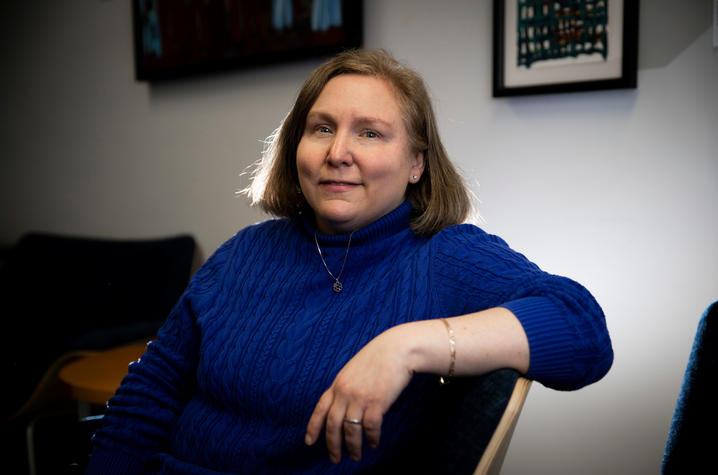
LEXINGTON, Ky. — As the number of overdose deaths continue to rise, the impact is far-reaching. More than 40% of Americans know someone who died from a drug overdose and around a third say the death disrupted their lives and impacted their physical or mental health.
That’s according to a new RAND study, co-authored by Julie Cerel, Ph.D., professor in the College of Social Work at the University of Kentucky. The results are published in the American Journal of Public Health.
Researchers are calling the findings an “overlooked emergency” for those left behind to cope with the emotional aftermath.
“Each year, more than 112,000 Americans die by overdose, including more than 2,000 Kentuckians. Each of these deaths leaves behind families, friends and other people to grieve and make sense of the loss,” Cerel said.
“Funding has often focused heavily on stopping the opioid crisis. But there also needs to be help for those left behind, who might be at risk themselves.”
Study Details
Cerel worked with RAND researchers Alison Athey and Beau Kilmer to survey 2,072 adults who participated in the RAND American Life Panel.
RAND is a nonprofit institution that helps improve policy and decision-making through research and analysis. More specifically, the RAND social and economic well-being division seeks to actively improve the health, social and economic welfare of populations and communities around the world.
Participants were asked whether they knew someone who died of a drug overdose and to characterize how the death affected their lives.
Results by the Numbers
The study found that 42.4% of respondents personally knew at least one person who died by an overdose — a finding that suggests around 125 million Americans have experienced such a loss, the researchers wrote.
Specifically, 19% of participants said they knew one person who died of an overdose, while 18.9% said they knew two to five people who died of an overdose and 4.5% said they knew six or more.
Overall, 13% of respondents said their lives were disrupted by an overdose loss, and more than 4% said the loss had a significant or devastating effect.
The study also found that women, married people, natives to the U.S. and urban residents were more likely to know a person who died of an overdose.
Additionally, people who lived in New England (Connecticut, Maine, Massachusetts, New Hampshire, Rhode Island and Vermont) and in the East South Central region (Alabama, Kentucky, Mississippi and Tennessee) were more likely to know someone who died of an overdose than people in other parts of the country.
“We know that Kentucky has a high rate of overdose deaths compared to other parts of the country,” Cerel said. “It’s imperative that we work to both decrease these deaths and help those left behind. And this work starts with understanding the widespread impact.”
Takeaway
While the overdose crisis has wide-ranging negative impacts on people who use drugs, their employers and public health systems, little research has explored the experiences of those left behind.
The findings emphasize the need for research into the prevalence and impact of overdose loss, particularly among groups and communities that experience disproportionate rates of loss.
As a suicidologist, Cerel also believes it’s important to consider a parallel line of research — noting the similarities between those left behind by suicide and those who knew someone who died of an overdose.
“Suicide and overdose deaths are similar in that there is a stigma, and people don’t always share their losses. Ultimately, this can complicate grief,” Cerel said. “It’s important for people who are substance bereaved or suicide bereaved to know they are not alone. It will also be important for future research to understand how our relationships with people who die by overdose or suicide can lead to increased risk.”
You can view the full study here.


















